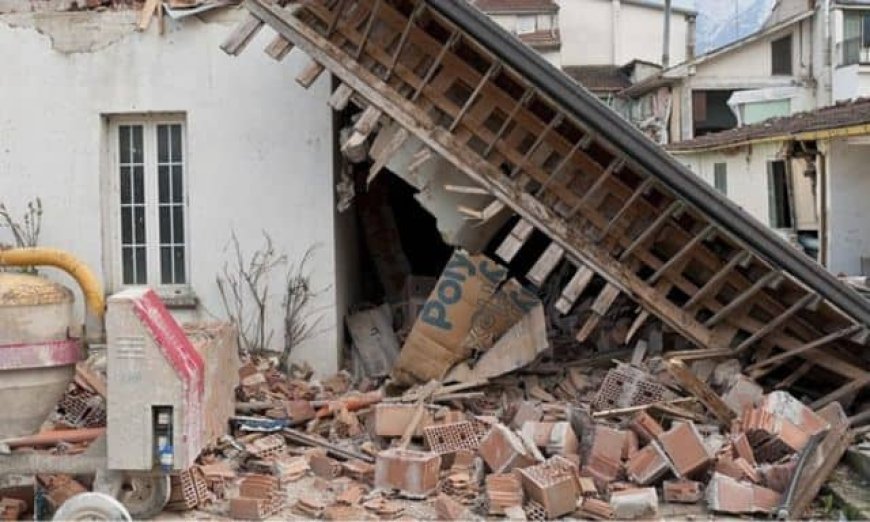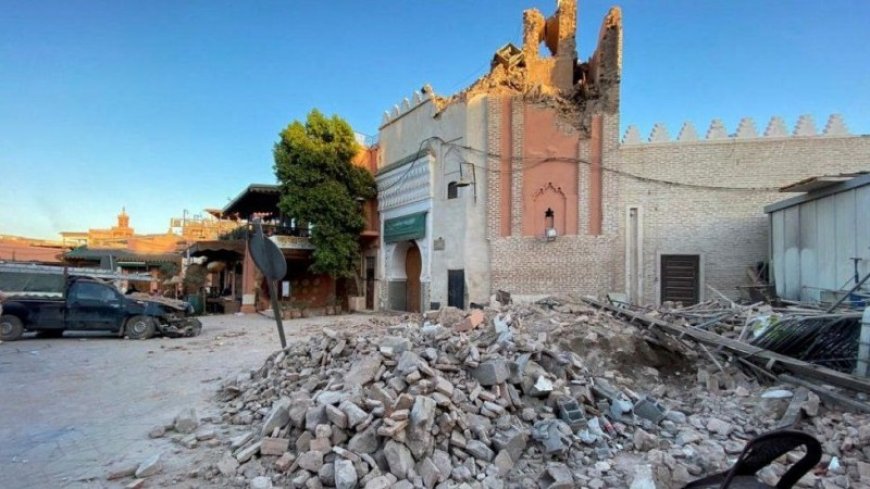Tragedy in Morocco: The Devastating Earthquake that Claimed Over 2100 Lives
Moroccans experienced another aftershock on Sunday as they mourned the victims of the country's strongest earthquake in over a hundred years. The earthquake, which had a magnitude of 6.8, resulted in
Moroccans experienced another aftershock on Sunday as they mourned the victims of the country's strongest earthquake in over a hundred years. The earthquake, which had a magnitude of 6.8, resulted in the death of over 2,100 people and is expected to claim more lives. The United Nations estimated that around 300,000 people were affected by the quake, and there were complaints on social media that the government was not allowing enough outside help. International aid crews were ready to assist, but grew frustrated as they awaited the official request from the government.
Heavy Catastrophic Earthquake in Morocco Claims Over 2,100 Lives
A devastating earthquake struck Morocco, resulting in a heavy catastrophe that claimed the lives of over 2,100 people. The earthquake, which occurred with great force and intensity, caused widespread destruction and left the affected areas in a state of chaos and devastation.
The tremors were felt across various cities and towns in Morocco, causing buildings to collapse, infrastructure to crumble, and leaving countless people trapped under the debris. The rescue operations were immediately launched to save as many lives as possible, but the sheer scale of the disaster made the efforts extremely challenging.
Rescue workers, volunteers, and international aid agencies worked tirelessly in search and rescue operations, providing medical assistance to the injured, and offering support to the affected communities. Despite their dedication and commitment, the death toll continued to rise, and the aftermath of the earthquake left the survivors traumatized and in desperate need of assistance.
The Moroccan government declared a state of emergency and called for international assistance to help cope with the disaster. Several countries and organizations responded promptly, providing aid in the form of medical supplies, search and rescue teams, and financial support to help the affected people rebuild their lives.
The earthquake not only caused an immense loss of life but also left many homeless and displaced. The survivors were forced to seek shelter in makeshift camps and temporary accommodation, with urgent needs for food, clean water, and basic amenities.
Efforts to rebuild the affected areas and restore normalcy are now underway, but the road to recovery is expected to be long and challenging. The disaster has highlighted the need for improved infrastructure and disaster preparedness in the region to mitigate the impact of future earthquakes.
The government of Morocco, along with international partners, is working towards providing immediate relief and long-term support to the affected communities. Efforts are being made to reconstruct damaged homes, rehabilitate infrastructure, and ensure the wellbeing of the survivors.
As the affected people mourn the loss of their loved ones and strive to rebuild their lives, the global community must come together to provide the necessary assistance, support, and resources to help them recover from this heavy catastrophe.
In Amizmiz, help was slow to arrive as a significant portion of the town, which consisted of orange and red sandstone brick houses carved into a mountainside, appeared to be missing. The minaret of a mosque had also collapsed. Villagers expressed frustration with the insufficient aid and uncertainty about the future.
Many people who were left homeless or feared more aftershocks slept outside in the streets of Marrakech or under makeshift canopies in badly affected towns. The worst destruction occurred in rural communities, making them difficult to access due to the roads being covered with fallen rocks.
On Sunday, the affected areas experienced another aftershock with a magnitude of 3.9, although it was unclear if it caused further damage or casualties. Many buildings were not strong enough to withstand the powerful earthquake, trapping people in the rubble and forcing others to flee.
Flags were lowered nationwide, and King Mohammed VI declared three days of national mourning starting Sunday. The army deployed search and rescue teams, and the king ordered the provision of water, food rations, and shelters to those who lost their homes. The king also called for prayers in mosques for the victims.
Unlike Turkey, Morocco has not made an international appeal for assistance, but offers of aid have been pouring in from around the world. The United Nations has a team in Morocco coordinating international support, and Rescuers Without Borders stated that around 100 teams consisting of a total of 3,500 rescuers are registered and ready to deploy when requested.
In a sign that Morocco may be prepared to accept more assistance, a Spanish search and rescue team arrived in Marrakech and was heading to Talat N'Yaaqoub, a rural area. The Moroccan authorities reportedly requested help from Spain. Another rescue team from Nice, France, was also on its way.









